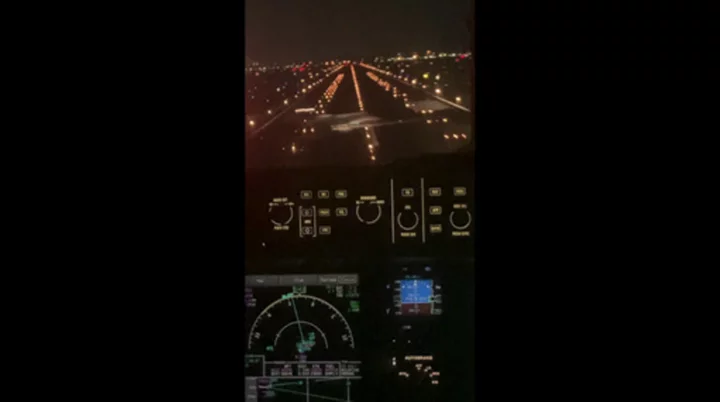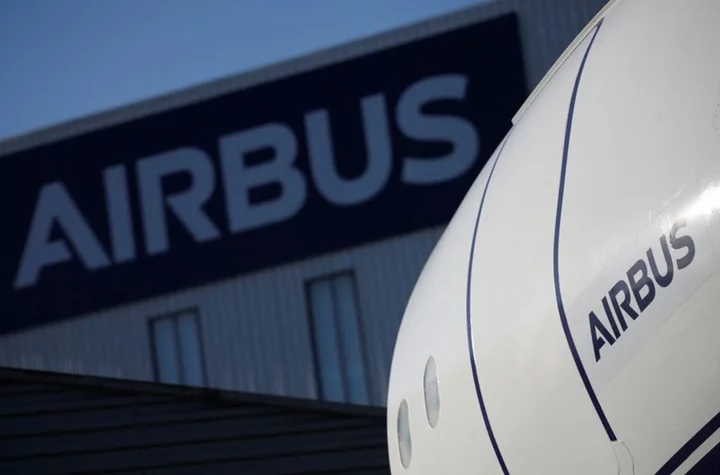Federal investigators said Thursday that the pilot of a charter jet took off without permission, creating a “conflict” with a JetBlue plane that was preparing to land on an intersecting runway at Boston's Logan International Airport in February.
A screen grab from video shot from the JetBlue cockpit captures the moment that the Learjet operated by charter service Hop-A-Jet crossed the runway just in front of the JetBlue plane.
Pilots of the JetBlue Embraer jet estimated they were about 30 feet (9 meters) off the ground when they saw a plane cross in front of them — the captain said he couldn't estimate how close they were to the smaller plane, according to a report from the National Transportation Safety Board. The JetBlue pilots were able to pull up and circle around and land safely.
The captain of the Hop-A-Jet said he heard air traffic controllers tell him to line up and wait before taking off — and even repeated the order back to the controller — “but in his mind, they were cleared for takeoff,” the NTSB said.
The Hop-A-Jet plane was being operated by the co-pilot, who told investigators that his captain told him they were cleared to take off.
The captain, Alvaro Donado, said in statement to the safety board, “I cannot understand what happened to me during the clearance, the only thing that comes to my mind is that the cold temperature in Boston affected me, I was not feeling completely well and had a stuffed nose. My apologies.”
Once the Hop-A-Jet plane landed in Fort Lauderdale, Florida, the 63-year-old captain and 23-year-old co-pilot were told by the Boston tower that they had taken off without authorization and that the JetBlue plane passed about 400 feet (120 meters) above them as it performed a go-around, the NTSB said in its final report.
A man who answered the phone at Hop-A-Jet headquarters said the company had no comment about the incident or the report. When asked if the captain and co-pilot were still flying for the company, he said he could not provide that information, and hung up.
The incident was one of several early this year that raised alarms about aviation safety in the United States despite the lack of a fatal crash involving a U.S. airline since 2009. The close calls led the Federal Aviation Administration to convene a “safety summit” in March to brainstorm ways to prevent planes from coming too close together.









